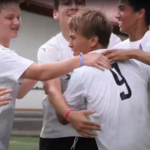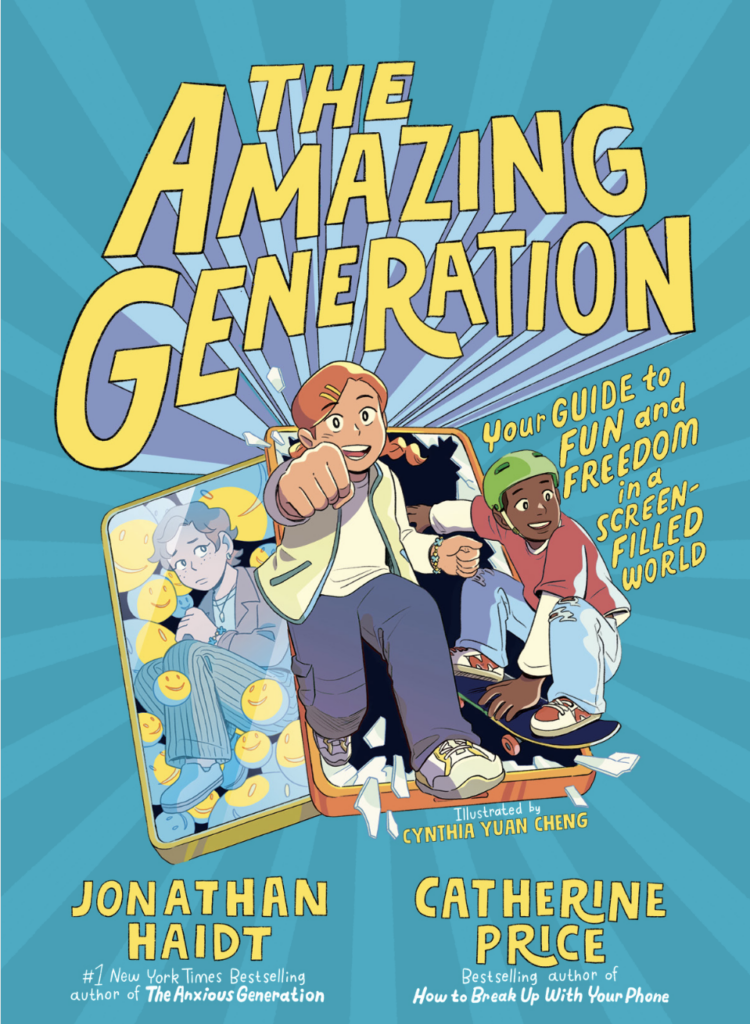






Deep, Meaningful Play Takes Self-Control…on the Part of the Adults
Like an animal behaviorist studying bonobos in the wild, Peter Gray found himself in the playroom at his church after services were over.
Gray is a co-founder of Let Grow and a research professor of psychology and neuroscience at Boston College. He’s also the author of Free to Learn, a treasure of a book, all about what and how kids learn when they’re playing. (And how hard it is for them to learn ANYTHING when bored.)
He watched as 14 kids arrived, aged about 3 to 12. They had a big, inflatable ball and a chunk of empty time while their boring parents socialized downstairs. They started to play “Keep Away.” Here’s an excerpt from what Peter saw and wrote up in his Psychology Today essay, “How to Ruin Children’s Play: Supervise, Praise, Intervene.”
…The 3-year-old runs joyfully in circles, his arms sometimes flailing above his head, showing no interest in the ball at all, just delighted to be out there running with these amazing older kids. Despite the differences in age, size, and ball-playing ability, all of the players are treated as equal—as equally worthy, equally deserving of having their needs met. The game goes on like this for the entire 20 minutes that I can stay and watch. As I watch I learn lessons of movement, rhythm, coordination, and unselfish self-expression, in which joy comes from anticipating and fulfilling the needs and desires of the others. I see democracy in its most ideal form, in action.
The kids and I are lucky that no other adults are paying attention and that my attention is inconspicuous. I’ve often seen such games ruined by well-meaning adults who intervened—for the sake of safety, or because they believed that someone was being treated unfairly, or because they believed that they knew better than the children how to make the game fun for children. Attentive adults can ruin games even if they don’t intend to intervene. Children perceive them as potential enforcers of safety, solvers of conflicts, and audiences for whining; and this perception invites the children to act unsafely, to squabble, and to whine. Play requires self-control, and the too-obvious presence of adults can lead children to relinquish their self-control.
How adult intervention disrupts the learning (and fun!) of play
That should blow a lot of us away. We THINK parents and teachers need to be around to step in and help kids learn to get along, be fair, and share.
But in fact, in order to learn those good behaviors — those social-emotional skills — kids need to actually practice them. With parents directing all the interactions, the kids are almost passive. They are not busy problem-solving. They are creating problems that get solved by someone else.
It’s like parents playing the scales for their kids, and hoping that this teaches them piano.
Gray exults that in this instance, no adults came in and tried to improve the game or the behavior or the level of fun. (Never try to make a happy child happier is the greatest parenting advice ever.)
Which doesn’t mean there were no arguments, or cries of “That’s not fair!” But I’m sure the kids figured it all out.
Because Gray sure didn’t.




Comments are closed for this article.